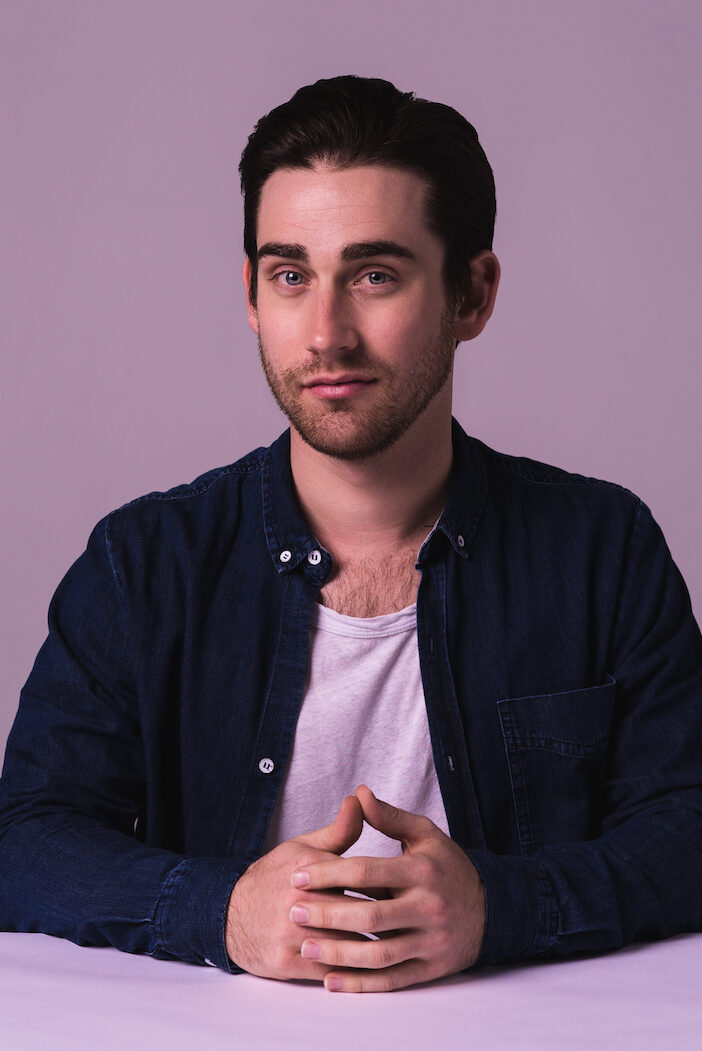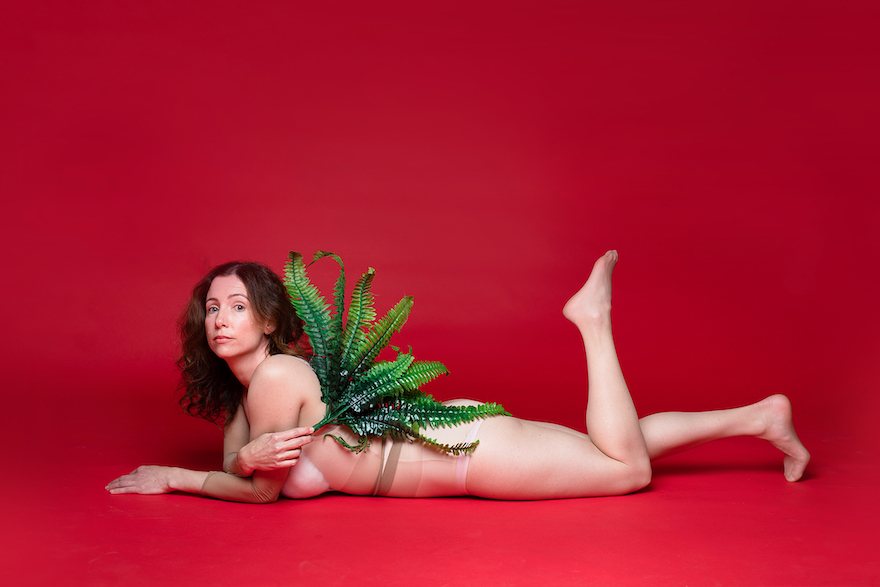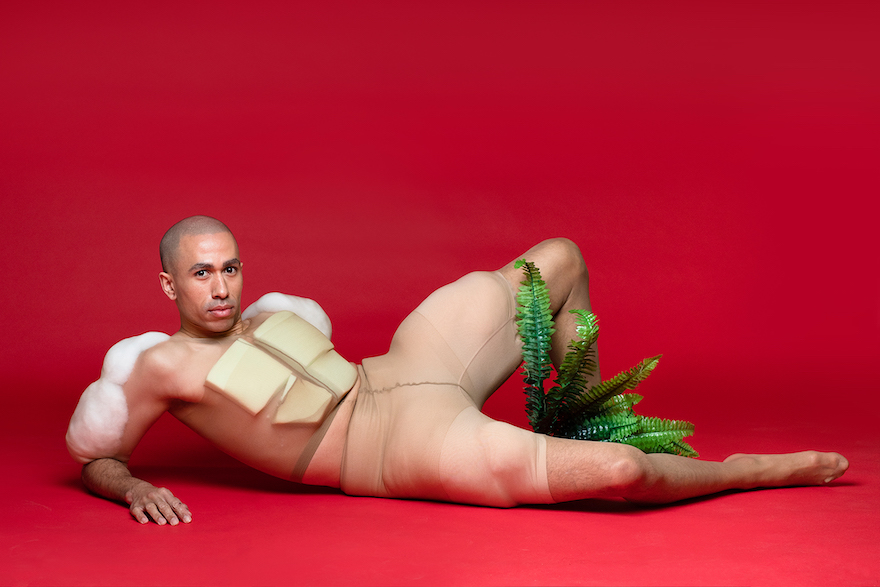Ever wondered what happened to Adam and Eve after God banished them for eating that forbidden fruit? The Last Great Hunt has some interesting answers.
What to SEE: D*ck pics in the Garden of Eden
27 October 2022
- Reading time • 10 minutesTheatre
More like this
- The A to Zed of reviewers | Vale David Zampatti
- Just what the doctor ordered
- Lifting the weight of the world
This article is sponsored content.
Could life get any worse than being turfed out of paradise, aka the Garden of Eden? Well, the Garden of Suburbia ain’t no picnic either, as the compromised couple find in The Last Great Hunt’s comedic take on the aftermath of humanity’s religious origin story.
In D*ck Pics in the Garden of Eden, the hapless duo are struggling to keep it together. Adam is in hot water once again after being caught sending a dick pic. It is slowly dawning on Eve that the man she thought she had been put on Earth to serve isn’t worth the effort.

Their sons aren’t faring much better, either. Cain has just been dragged to the principal’s office for sending lewd material to another student, while Abel has his own issues.
Throw in a stand-up comedian who’s struggling for relevance in a world gone ‘woke’, an ex-wife with a message from God, and a rather limp Lucifer, and you know this isn’t just another day in the suburbs. Or is it?
Julie Hosking caught up with creator Jeffrey Jay Fowler ahead of the world premiere to find out why he decided to dig up this particular garden and explore the treasures beneath the surface.
Julie Hosking: A religious origin story seems an unlikely place to start for a comedy. What is the genesis of D*ck Pics in the Garden of Eden?
Jeffery Jay Fowler: According to the story of Adam and Eve, it was after eating from the Tree of Knowledge that the human race felt shame for the first time. So, I thought it was the perfect setting for an investigation into the origins of shame, and the origins of the desire to expose oneself. After all, a dick pic would have had no meaning in Eden before the fall of man.
JH: Adam and Eve have been dragged into the present, where the internet is proving as problematic as the forbidden fruit. How would you describe modern technology’s role in the Garden of Suburbia?
JJF: Adam, Eve, and their children each have a different relationship to the digital world. But it very much is the forbidden fruit, after all the Internet very much is the Tree of Knowledge in modern day. And we eat from it constantly.
JH: You’ve chosen to provide most of the story from Eve’s perspective. She still has a conventional female role despite the modern constructs until she starts to ask herself why she’s the one holding it all together. Can you explain why her voice is particularly important?
JJF: I find women far more relatable than men. She also seems to be a more active character to me. If Eve ate the fruit of temptation, then she is the one who seeks out change, she is the one who takes risks – that makes for a great central character. “What happens after temptation” is an interesting question to me. I also live in awe of mothers, and I think there is a lot to be said about the sacrifices many women make for their children.

JH: Cain is described as a radical queer who makes porn for a living, but his mother ends up living with him. He seems to be a character designed to make us check our innate biases and challenge our thinking?
JJF: I’d say the whole play is designed to offer the audience a chance to check their biases and thinking. Our attitudes to sex are changing at a very rapid rate. We are being flung at lightspeed through a technological sexual revolution, and many of us are clinging very tightly onto attitudes and opinions that haven’t made sense for a long time.
JH: Sex in the Garden of Suburbia is pedestrian, with everyone “medicated, deflated, distracted or depressed”. The internet has made sex more accessible than ever, yet also reduced its appeal in some ways. Is this a commentary on its pervasiveness at the cost of connection?
JJF: A lot of studies are showing that the accessibility of porn, which is effectively access to free stimulation of a kind that would once have been incredibly sparse, is changing our expectations of sex (and therefore our expectations of relationships). A lot of people don’t realise how many of their sexual scripts have come from porn. But the play isn’t only about porn. It’s about sexual politics. It’s about the battle for sex positivity (and internalised sex negativity). It’s about this moment we’re in, but also a moment we have been stuck in for a very long time. What progress is feminism making? What progress is LGBTQIA+ liberation making? And how are the straight men doing?
JH: Tell us about the inspiration for Dick Dickson, the put-upon comedian. He seems to be a composite of so many straight, white dudes who think the ‘woke’ culture has made them irrelevant. What is his significance in terms of driving the narrative?
JJF: I went to the Edinburgh Fringe Festival one year and four male comics all ended their shows by getting naked and showing the audience their (seemingly) small penises. I’m fascinated by the vulnerable straight man who feels the rules of the world shifting around him. I am fascinated by their desire to be seen, to be heard, and to be feminist (or if they won’t use that word, at least to be fair to women). And I’ve met many men whose genuine earnest attempts at feminism fall short, much to their shock and confusion. “But I’m one of the good guys.”

JH: Unlike The Last Great Hunt’s previous production Telephone, this one is told in a linear narrative style. Was this about anchoring the unconventional story line or wanting to take the audience on a specific journey?
JJF: The narrative is chronological but has some time leaps (thousands of years pass within the play). It was just the way of telling a story that made sense for characters and ideas I am playing with. The span of time the play courses is a way of asking “how long has this been going on?”
JH: The Last Great Hunt likes to make theatre that challenges and makes us think. What questions or topics of discussion are you hoping the audience will take away from D*ck Pics in the Garden of Eden?
JJF: Week one of rehearsals has shown me that everyone will respond to the play differently. The conversation has been very lively and it has become clear there is no version of the play that will make everyone happy and comfortable. But I hope that everyone sees something in the play that illuminates a part of themselves. It should be a lively show that provides a lively conversation for friends and companions that go together. I certainly don’t have all the answers on how to navigate the particular cultural/sexual/political moment we’re in, but I do have a lot of questions.
D*ck Pics in the Garden of Eden is at Subiaco Arts Centre from 16 November 2022.
Pictured top: D*ck Pics in the Garden of Eden explores family dynamics and sexual politics. Photo: Daniel Grant
Like what you're reading? Support Seesaw.





